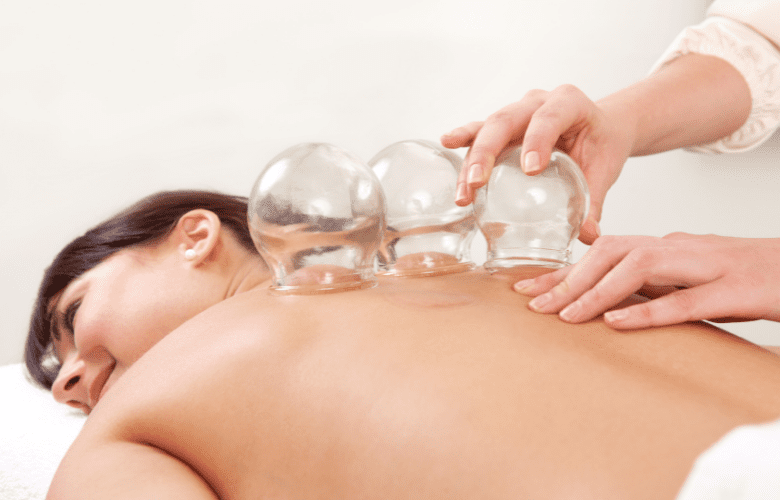Acupuncture for Headaches
Did you know that people complain about headaches more than other symptoms? According to a study done by Global Burden of Disease (GBD), half the world’s population suffers from headaches actively; 15.8% of these people suffer from headaches each day. Headaches can also be dull or severe pain and come in different types, including general headaches, migraine, and tension or cluster headaches. Acupuncture can be very effective for this type of pain.
How acupuncture helps with headaches
Acupuncture points combined with herbal formulas help quench liver fire and eliminate phlegm which blocks energy from circulating, especially excess heat energy. Acupuncture points are believed to stimulate the central nervous system, which releases chemicals into the muscles, spinal cord, and brain. These biochemical changes may boost the body’s natural healing abilities and support overall wellness. For headaches, an acupuncturist might focus on pressure points, such as the spot between the thumb and index finger, points along the neck or back, or on the head itself.

Types of headaches
Headaches
General headaches are extremely common; the main symptom is pain experienced in the head or face. The severity of pain can range from sharp to dull. Sometimes the headache throbs or is in constant pain. In TCM, headaches can be caused by:
- Liver yang rising – your liver energy increases and can cause a deficiency of liver yin, which means your energies become imbalanced
- Liver fire – this is when heat or fire from your liver
- Qi stagnation and blood stasis – your vital energy is stagnant, and circulation is blocked
Migraine
A migraine is a different type of headache; the pain and symptoms from a migraine can disrupt a person’s life and can last for hours to days. Some people also experience an aura that warns of an impending migraine. An aura may include visual disturbances and tingling on one side of the arm, leg, or face. Other warning signs include constipation, food cravings, stiff neck, increased urination, frequent yawning, and mood changes. In conventional medicine, the cause of migraines is still not completely understood, although diet, lifestyle, hormones, and genetics may play a role. Medication is often used to treat intense and debilitating pain, and studies show that acupuncture can be very effective in treating migraines. In TCM, migraines are associated with qi blockage and deficiencies in the liver, spleen, and kidney.
Migraine symptoms include
- Intense pain
- Nausea
- Vomiting
- Auras
- Flashes of light
- Light sensitivity
- Sound sensitivity
Cluster
Cluster headaches are cyclical in nature and can be very painful. A cluster headache commonly awakens you in the middle of the night with intense pain in or around one eye on one side of your head. Bouts of frequent attacks, known as cluster periods, can last from weeks to months. Fortunately, a cluster headache is rare and not life-threatening. Acupuncture is effective for cluster headache pain and is often approached like a migraine.
Tension
These tend to be the most common headaches; tension headaches are often brought on by stress. Tension headaches cause a steady ache rather than a throbbing one and affect both sides of the head. Tension headaches may be chronic, occurring often or every day. Tension headaches can be caused by dehydration, hormone imbalances, stress, and even the weather. Traditional Chinese medicine approaches this type of pain by discovering the root causes.

Other ways to reduce headache or migraine pain
Cupping
Cupping therapy is used in TCM to help balance and restore the flow of qi. Cupping therapy can include dry cupping and traditional wet cupping. In ayurvedic medicine, cupping or Al-Hijamah removes toxins from the blood.
Chinese herbs
Jia Wei Xiao Yao Wan – this formula is used for tension or stress-induced headaches. These herbs reduce heat and purge your body of pent-up tension and anger.
Chai Hu Long Gu Mu Li Wan – this brings excess qi energy from the head to reduce pain and is an excellent formula for pounding headaches.
Xiao Yao Wan – this herbal formula circulates qi, reduces pain, and releases tension.
A well-known traditional Chinese headache formula is Ligusticum tea pills. The main herb is Chuan Xiong, which is well known for relieving the pain of a general headache or after being exposed to cold or wintery weather.
Essential Oils
Essential oils used in aromatherapy can be helpful for headache pain, significantly when diluted with a coconut carrier oil.
- Peppermint oil – contains menthol, which helps relax the muscles and reduce pain.
- Rosemary oil – has anti-inflammatory properties and has been medicinally used for centuries
- Eucalyptus oil – this oil clears nasal and sinus passages and reduces painful sinus tension
- Lavender oil – is used for stress reduction and camping properties. Studies show that only 15 minutes of aromatherapy with lavender significantly reduce pain.
- Chamomile oil – used for calming properties and relaxation
Exercise
Regular physical activity can help with chronic and recurring headaches and migraines.
Some exercises include:
- Yoga
- Stretching
- Cardio such as running or walking
Diet
Diet is an integral part of any headache treatment plan. Many foods trigger headaches but can vary from person to person. The foods most commonly reported for triggering headaches include processed foods, aged cheeses, smoked or dried fish, cultured dairy products, high sodium foods like potato chips, and foods high in carbohydrates and sugar.
Foods that are helpful for headaches
- Coffee
- Vitamin B3
- Spicy foods
- Magnolia flower
- Basil
- Lavender
- Peppermint
- Feverfew
- Foods rich in magnesium, calcium, and potassium
Meditation
Since stress is a common headache or migraine trigger, meditation might be an important tool to add to the treatment toolbox. Meditation has been shown to inhibit the release of stress hormones and to release hormones That support overall wellness and pain management.










